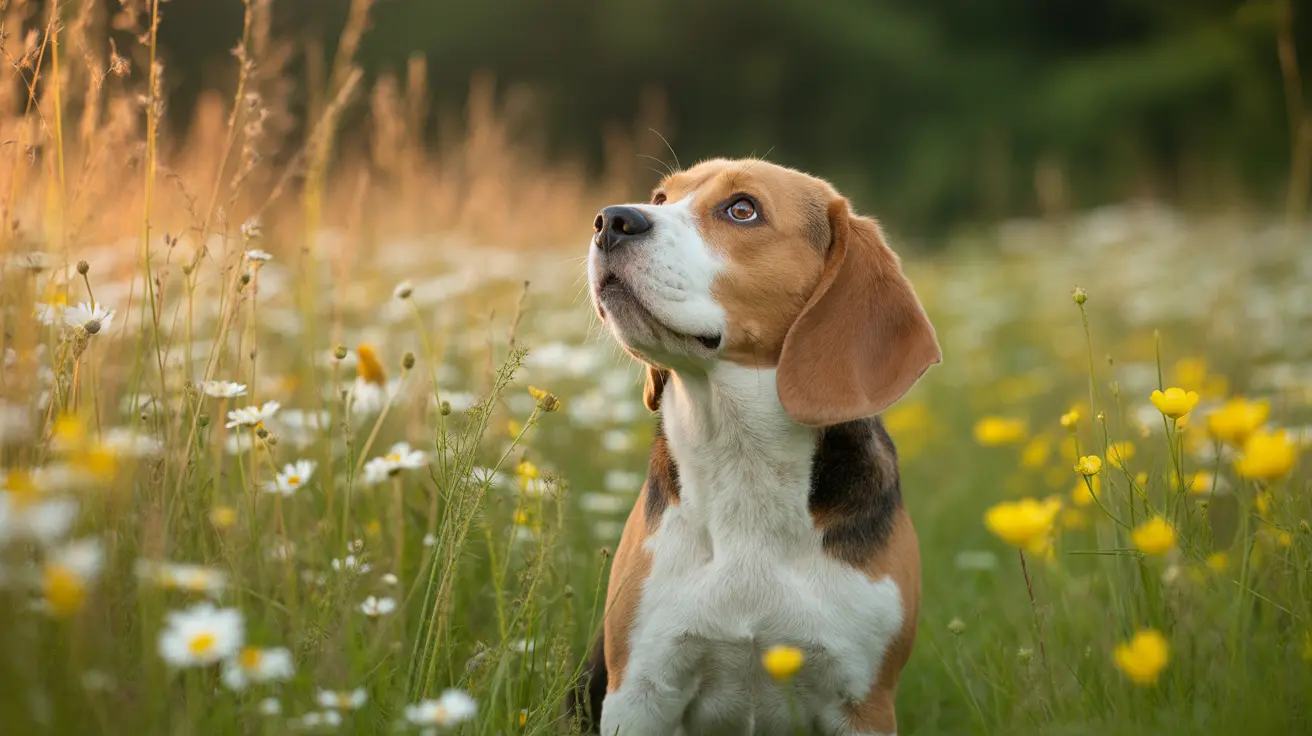The Historical Origins of Beagle Howling
Beagles were originally bred as scent hounds, specifically for hunting rabbits and other small game. Their howling served a crucial purpose during hunts, allowing hunters to track their location and know when they'd found their quarry.
The breed's name itself hints at their vocal nature, potentially deriving from the French word "be'gueule," meaning "open throat." This etymology reflects their renowned ability to produce loud, resonant vocalizations that can carry for impressive distances.
Different Types of Beagle Vocalizations
The Classic Beagle Howl
The signature Beagle howl is a long, sustained vocalization that can carry for up to a mile. It's typically melodious and often described as having a somewhat mournful quality. This sound served as a location beacon during hunts and continues to be used by modern Beagles for communication.
The Distinctive Bay
Baying is a unique vocalization that sits between a bark and a howl, often compared to a trumpet-like sound. This sound is particularly common when Beagles are following a scent trail or experiencing high excitement levels.
Common Triggers for Beagle Howling
Beagles may howl for various reasons, including:
- Response to high-pitched sounds or sirens
- Communication with other dogs
- Alert to new scents or perceived threats
- Expression of loneliness or anxiety
- Excitement during play or activities
- Response to environmental changes
Managing Beagle Howling
While howling is natural for Beagles, excessive vocalization can be managed through:
- Regular exercise and mental stimulation
- Consistent training and positive reinforcement
- Creating a stable routine
- Addressing separation anxiety
- Providing adequate social interaction
Frequently Asked Questions
Why do Beagles howl so much compared to other dog breeds?
Beagles howl frequently because of their hunting heritage. As pack hounds, they were bred to use their voices to communicate with hunters and other dogs during hunts. This genetic predisposition makes them naturally more vocal than many other breeds.
What are the main reasons my Beagle howls when left alone?
When left alone, Beagles typically howl due to separation anxiety, boredom, or attempting to call their pack (family) back home. This behavior stems from their pack mentality and strong social needs.
How can I tell if my Beagle's howling is due to boredom or anxiety?
Anxiety-related howling often comes with other signs like pacing, destructive behavior, or excessive drooling. Boredom-related howling usually occurs when the dog has been inactive for long periods and may stop when given attention or activity.
What types of sounds or situations typically trigger Beagle howling?
Common triggers include sirens, other dogs howling, musical instruments, high-pitched sounds, unfamiliar noises, and the arrival of visitors. Their sensitive hearing makes them responsive to a wide range of acoustic stimuli.
How can I effectively reduce or manage excessive howling in my Beagle?
To manage excessive howling, ensure your Beagle gets plenty of exercise, mental stimulation, and social interaction. Use positive reinforcement training, establish consistent routines, and address any underlying anxiety or health issues with your veterinarian.
Conclusion
While Beagle howling can sometimes be challenging for owners, understanding its origins and purposes helps in managing this natural behavior effectively. With proper training, exercise, and attention to their needs, Beagle owners can maintain a harmonious relationship with their vocal companions while respecting their inherent traits.






